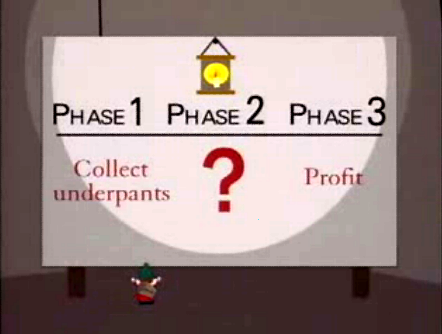The complaint is here.
From the preliminary statement:
SB 1070 is unconstitutional. It violates the Supremacy Clause and core civil rights and civil liberties secured by the United States Constitution, including the First Amendment right to freedom of speech and expressive activity, the Fourth Amendment right to freedom from unreasonable searches and seizures, and the Equal Protection Clause guarantee of equal protection under the law.
The plaintiffs in this action will suffer serious violations of their constitutional rights and civil liberties if SB 1070 goes into effect. The named plaintiffs bring this action on behalf of themselves and a class of all others similarly situated to obtain preliminary and permanent injunctive relief and a declaration that SB 1070 violates the U.S. and Arizona Constitutions.
Count 1 alleges a violation of the Supremacy Clause:
183. SB 1070 is void in its entirety because it attempts to bypass federal immigration law and to supplant it with a state policy of “attrition through enforcement,” in violation of the prohibition on state regulation of immigration.
184. SB 1070 conflicts with federal laws and policies, usurps powers constitutionally vested in the federal government exclusively, attempts to legislate in fields occupied by the federal government, imposes burdens and penalties on legal residents not authorized by and contrary to federal law, and unilaterally imposes burdens on the federal government’s resources and processes, each in violation of the Supremacy
Clause.
Count 2 allege a violation of equal protection.
187. SB 1070 was enacted with the purpose and intent to discriminate against racial and national origin minorities, including Latinos, on the basis of race and national origin.
188. SB 1070 impermissibly and invidiously targets Plaintiffs who are racial and national origin minorities, including Latinos, residing or traveling in Arizona and subjects them to stops, detentions, questioning, and arrests because of their race and/or national
origin.
189. SB 1070 impermissibly deprives Plaintiffs who are racial and national origin minorities, including Latinos, residing or traveling in Arizona of the equal protection of the laws within the meaning of the Fourteenth Amendment to the U.S. Constitution.
190. Section 3 of SB 1070 impermissibly discriminates against non-citizen Plaintiffs on the basis of alienage and deprives them of the equal protection of the laws within the meaning of the Fourteenth Amendment to the U.S. Constitution.
Count 3 alleges a violation of the First Amendment:
193. Both Section 2 and Section 5 of SB 1070 are unconstitutional restrictions of rights guaranteed by the First Amendment.
Count 4 alleges a violation of the Fourth Amendment
196. Section 2 of SB 1070, as amended by Section 3 of HB 2162, requires that officers conduct unreasonable seizures of individuals in violation of the Fourth Amendment.
197. Sections 2 and 6 of SB 1070 provide for warrantless seizures of individuals in the absence of probable cause that they have committed crimes, in violation of the Fourth Amendment.
198. Section 2 of SB 1070 authorizes officers to detain individuals without lawful authority and transport individuals into federal custody, in violation of the Fourth Amendment.
Count 5 alleges a violation of the Arizona Constitution
Count 6 alleges a violation of Due Process.
Count 7 alleges a violation of the Right to Travel under the Article IV Privileges and Immunities Clause. And for some reason it cites the Privileges or Immunities Clause.
210. The Privileges and Immunities Clause of the U.S. Constitution, art. IV, § 2, cl. 1, provides that “[t]he Citizens of each State shall be entitled to all Privileges and Immunities of Citizens in the several States.”
211. The Fourteenth Amendment to the U.S. Constitution provides that “[n]o State shall make or enforce any law which shall abridge the privileges or immunities of citizens of the United States.”
212. Both provisions prevent states from infringing upon the right to travel, including the right to be treated as a welcome visitor rather than an unfriendly alien when temporarily present in another state, without a rational or compelling justification.
213. Section 2 of SB 1070 subjects those U.S. citizens who appear to a law enforcement officer to possibly be “unlawfully present in the United States” to investigation and detention pending a determination of immigration status if they do not present an identification document deemed acceptable by the State of Arizona.
214. SB 1070 thus interferes with the rights of such out-of-state citizens to travel freely through the State of Arizona without being stopped, interrogated, and detained.
